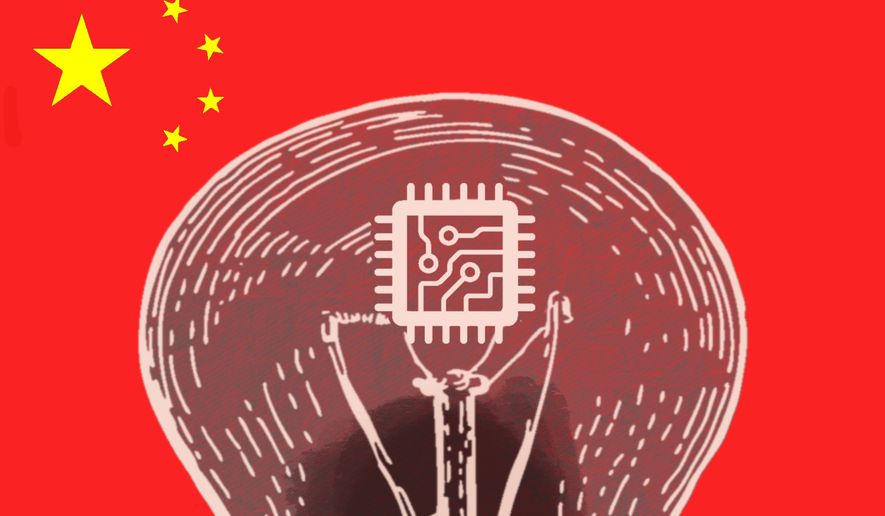OPINION:
President Trump recently called for the repeal of the CHIPS Act and said, “It is a horrible, horrible thing. We give hundreds of billions of dollars, and it doesn’t mean a thing.” The president has a good reason for his view of the CHIPS Act.
Although thought leaders in the U.S. increasingly understand that technology, aka innovation, is critical to the strength and growth of a country and its organizations, the flawed basis of U.S. decision-making guarantees that U.S. innovation initiatives, such as the CHIPS Act, will fall way short of generating the required competitive advantage relative to China.
I was the founding director of President Reagan’s Socrates Project. Socrates was a joint White House-U.S. intelligence community initiative with a twofold mission: to determine the true underlying cause of U.S. economic and military decline and to develop the means to reverse that decline. We were fully successful in both aspects of our mission.
We determined that the basis for decision-making in the U.S. is finance-based planning, while the basis for decision-making in China is technology-based. China is radically different and, as a result, is locked into providing radically different results.
U.S. finance-based planning became pervasive throughout the U.S. starting at the end of World War II, and it is the underlying cause of America’s economic and military decline. China has been executing technology-based planning for decades, and it is what has enabled China to become a world superpower faster than any other country in history.
In finance-based planning, the foundation of all decision-making is the effective use of funds, and the measure of success after the fact is how well the funds were used to accomplish an objective. In most cases, the objective is also defined from a finance-based perspective, such as gross domestic product, return on investment, and profit and loss.
In technology-based planning, the foundation of all decision-making is exploiting the technology more effectively than the competition to excel at satisfying one or more customer needs for a true competitive advantage in the marketplace or on the battlefield. The customer in the latter case is the warfighter.
Technology is correctly defined as any application of science to accomplish a function. The science can be leading-edge or well-established, and the function can be pushing the envelope or considered mundane and supportive. Still, it is all technology, and when a country or an organization exploits it more effectively than the competition to excel at satisfying one or more customer needs, it will provide the country or the organization with a competitive advantage.
Finance-based planning is incapable of providing a logical construct of the competitive environment. The only reason it appears so is that it measures on the back end to determine the success the same thing it optimized on the front end: funds. Everything in between, the competitive environment, is an inscrutable “black box.” Funds go in, and funds come out, but what causes it can only be surmised.
Technology-based planning does provide a logical construct of the competitive environment. It is no longer an unknowable black box but rather the logical interactions between the country’s (or an organization’s) and its competitors’ respective exploitation of technology that dictate which will produce goods or provide services that excel at satisfying the customer. That’s a true competitive advantage in the marketplace, all dictated by the concrete laws of physics.
This precise and accurately defined interaction between the country’s/organization’s technology exploitation and that of its competitors dictates and enables for the full optimization of the amount of other resources required — such as funds, manpower and natural resources — and how these resources must be deployed to excel at satisfying customer needs for a competitive advantage that enables results, including gross national product, return on investment and standard of living.
Because China’s technology-based planning uses a logical construct of the competitive environment and the U.S. finance-based planning does not, China’s technology strategy dictates the amount of other resources that both China and the U.S. require to generate a competitive advantage. China dictates how efficiently the U.S. uses its other resources, such as funds.
If America’s innovation initiatives are to generate the required competitive advantage relative to China, they must be based on technology-based planning, not just doling out money, and the sophistication of America’s tech-based planning must far outstrip China’s. The Socrates Project developed the next generation of tech-based planning to accomplish the second part of its mission: ensuring America’s status as a superpower for generations.
I discussed with congressional staffers who were drafting the CHIPS Act the importance of reestablishing the Socrates Project in the measure so that technology-based, not finance-based, planning would be the foundation for decision-making. They agreed to its importance and that it would be included, but it was omitted.
• Michael C. Sekora was the founding director of the Reagan administration’s Socrates Project. Since the George H.W. Bush administration abolished Socrates, he has continued the mission by working with America’s key allies.




Please read our comment policy before commenting.